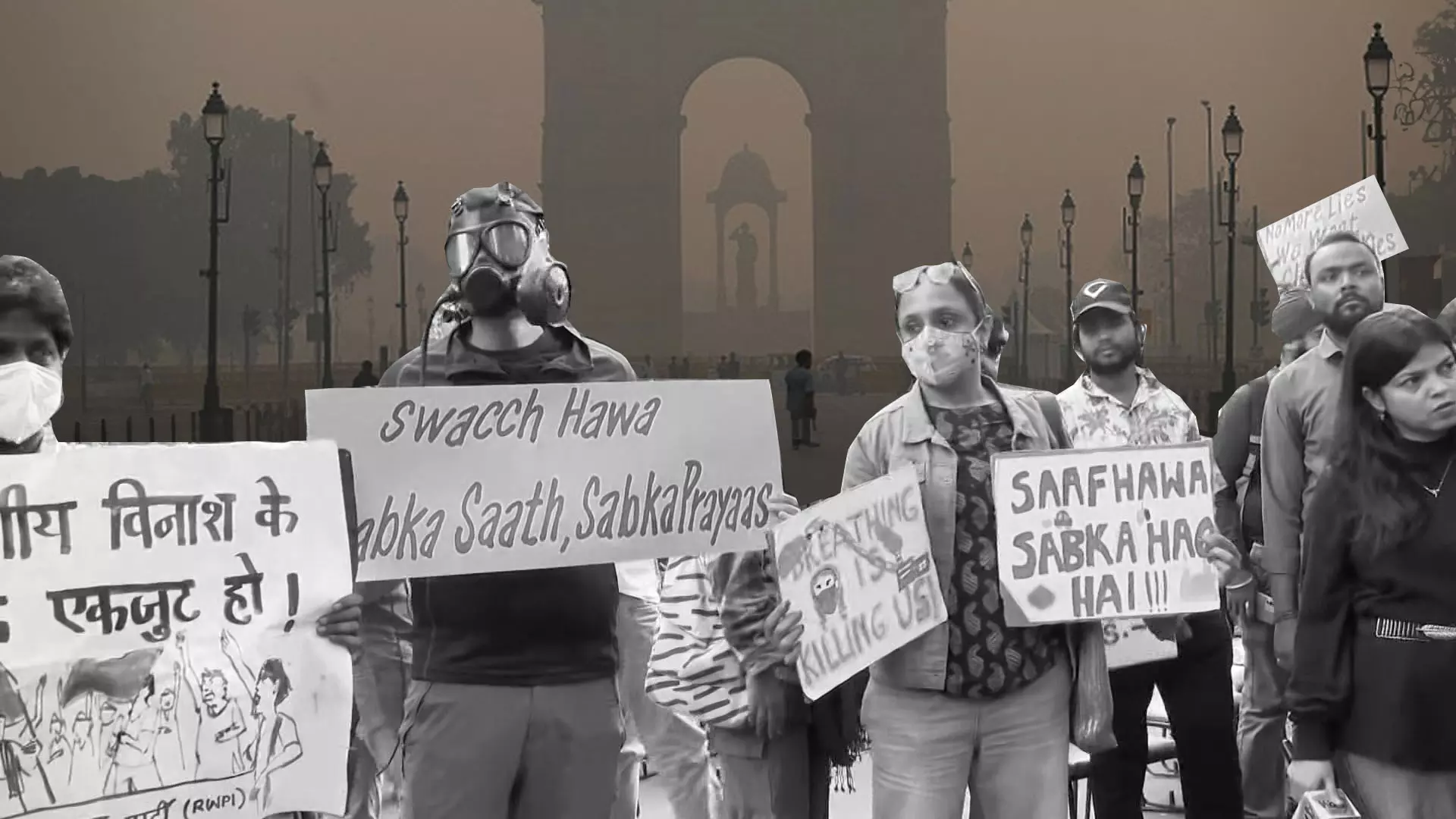
Delhi pollution protest erupts again as citizens demand 'right to breathe'
Residents, students and environmentalists accuse the government of ignoring toxic air and masking AQI data. Will protests force accountability?

Delhi witnessed a fresh surge of anger on Tuesday (November 18) as citizens thronged Jantar Mantar to protest the capital’s worsening, nearly unbreathable air. Families, students, working professionals and senior citizens gathered with a single message: the right to breathe cannot be delayed any longer.
Many argued that year after year, governments have offered only cosmetic fixes while pollution has grown into a public health emergency.
Citizens raise alarm
Among those protesting was Anita, who said she had never seen Delhi in such a state.
She argued that elected governments should already know what needs to be done and should rely on expert advice, not waste public money on cloud seeding. She pointed out that without moisture in the air, such exercises are pointless, especially when Delhi remains extremely dry. She insisted that authorities must focus on real solutions rather than symbolic expenditures.
Also read: ‘Putting them in gas chambers’: SC seeks delay of NCR school sports
Eight-year-old Advait also joined the demonstration, holding up handmade posters and explaining that the city’s pollution has been hurting his throat. Protesters said that when even children feel this level of discomfort, the crisis has clearly crossed the threshold of acceptability.
Data issues
Environmentalists at the protest argued that without long term structural reforms and honest air quality data, Delhi will continue to gasp every winter.
Environmentalist Vimlendu Jha criticised the government’s reliance on cloud seeding, noting that while such techniques have been used in drought-hit regions, they are not a proven method for combating air pollution. He referred to examples from abroad and pointed out that even when cloud seeding was attempted this year, it failed to produce rain, showing the fundamental flaw in depending on such quick fixes.
He added that a more troubling issue is the manipulation of AQI readings. He said the government has frequently reduced reported pollution levels by switching off certain air quality monitors, allowing inaccurate monitors to continue functioning or even sprinkling water around sensors to distort readings.
Also read: Can't Delhi residents demand clean air? Why police action on protestors?
By hiding real data, he warned, the government prevents people from understanding how severe the air truly is, which also deprives them of timely public health advisories.
Need for urgent intervention
Student protesters said their classrooms, commutes and daily routines are now dictated by the city’s toxic air.
Delhi University student Abhigyan argued that the government must first publicly acknowledge pollution as the city’s biggest challenge today. He said that instead of responding with sincerity, authorities appear to be fabricating pollution data by manipulating the readings of AQI sensors.
He pointed out that while AQI readings are being diluted for the public, the government has installed expensive high grade air purifiers inside the Delhi Secretariat, sending a message that protection is reserved only for those in power. He stressed the need for immediate interventions such as reinstating the odd-even traffic formula and ensuring that all hospitals, including private ones, offer free pulmonary care because it is the poor who are suffering the most.
Protests likely to continue
This demonstration at Jantar Mantar is the second major protest against air pollution this month. The previous one, held at India Gate, led to detentions after police claimed that the crowd had violated prohibitory orders.
Protesters on Tuesday, however, said they will continue to gather until the government treats air pollution as a serious health emergency and stops tampering with AQI data, which they believe is the first step toward any meaningful solution.
The content above has been transcribed from video using a fine tuned AI model. To ensure accuracy, quality, and editorial integrity, we employ a Human In The Loop (HITL) process. While AI assists in creating the initial draft, our experienced editorial team carefully reviews, edits and refines the content before publication. At The Federal, we combine the efficiency of AI with the expertise of human editors to deliver reliable and insightful journalism.

